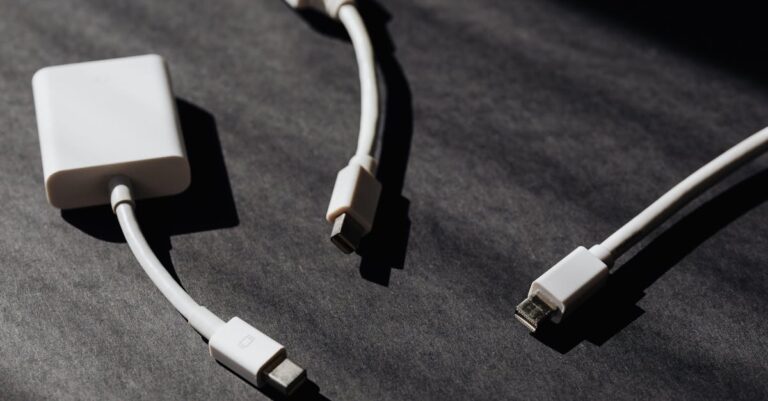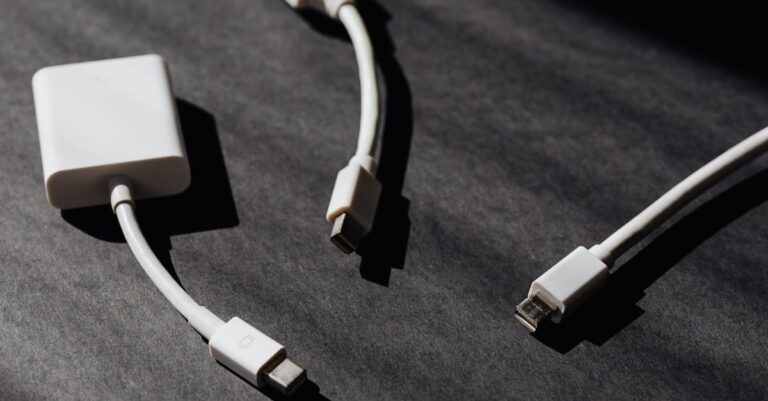Table of Contents
ToggleImagine sitting quietly when suddenly your stomach starts a symphony of bubble pops, like a mini fireworks show just for you. It’s both amusing and mildly concerning, isn’t it? This peculiar sensation can leave anyone wondering if they’re about to launch into a comedy routine or if their lunch is staging a rebellion.
Understanding Gastrointestinal Sensations
Gastrointestinal sensations can evoke curiosity or concern. Bubble-like feelings in the stomach often signal normal digestive processes but may also indicate other issues.
What Are Bubble-Like Sensations?
Bubble-like sensations in the stomach represent gas movement or fluid shifts. They occur when food breaks down and digestive gases build up. These sensations might feel like foreign activity within the abdomen. Most individuals experience this at some point during digestion. It’s essential to recognize that occasional gurgling or bubbling generally isn’t indicative of serious problems.
Common Causes of Bloating
Bloating often arises from various dietary and lifestyle factors. Aerophagia, or swallowing air while eating, can create excess gas. Gas production also occurs from the breakdown of certain foods, like legumes, dairy, and carbonated beverages. Hormonal changes, especially during menstrual cycles, may contribute to feelings of fullness. Stress and anxiety can further exacerbate these symptoms, impacting digestion. Identifying specific dietary triggers plays a crucial role in managing bloating effectively.
Symptoms Associated with Bubbles in the Stomach

Bubbles in the stomach often accompany various symptoms that can provide insight into digestive health. Recognizing these symptoms helps in understanding the cause of discomfort.
Identifying Accompanying Symptoms
Stomach noises may come with bloating, gas, or abdominal pain. Feeling full after small meals often indicates sluggish digestion. Nausea can surface, signaling possible underlying issues. Changes in bowel habits sometimes correlate, showing a potential adjustment in digestion. Appetite fluctuations frequently occur alongside these sensations, affecting food intake. Detailed symptom tracking aids in identifying potential triggers, allowing for better management of dietary choices.
When to Seek Medical Attention
Seeking medical attention becomes crucial if symptoms persist beyond a few days. Intense abdominal pain may indicate a more serious condition requiring professional evaluation. Unexplained weight loss can signal underlying health concerns, necessitating a doctor’s visit. Symptoms like fever or vomiting, particularly when severe, may demand immediate care. Additionally, showing signs of dehydration warrants prompt medical intervention. Recognizing these warning signs leads to timely diagnosis and treatment.
Potential Conditions Linked to This Sensation
Bubble-like sensations in the stomach may indicate various underlying conditions. Understanding these potential causes can aid in effective management and treatment.
Gas Accumulation and Its Effects
Gas accumulation leads to uncomfortable sensations in the abdomen. Swallowed air while eating contributes significantly to this problem. The breakdown of certain foods, particularly those high in fiber, also generates gas. Increased gas can result in bloating, distension, or a feeling of fullness. Stress, too, affects digestion and may exacerbate gas production. Recognizing dietary habits and managing stress levels can alleviate these symptoms.
Other Gastrointestinal Disorders
Several gastrointestinal disorders cause similar bubble sensations. Irritable bowel syndrome (IBS) is a common disorder affecting digestion and can produce discomfort. Inflammatory bowel disease (IBD), which includes conditions like Crohn’s disease and ulcerative colitis, leads to symptoms such as abdominal pain and irregular bowel movements. Gastroesophageal reflux disease (GERD) may manifest with bubble-like feelings due to acid increase. Any persistent symptoms warrant a professional evaluation to rule out serious issues and explore appropriate treatments.
Home Remedies and Lifestyle Changes
Home remedies and lifestyle changes can significantly reduce the sensation of bubbles popping in the stomach. Simple adjustments in daily habits often lead to noticeable improvements.
Dietary Adjustments to Consider
Reducing gas-producing foods can help alleviate symptoms. Beans, broccoli, and carbonated beverages frequently contribute to bloating and discomfort. Eating smaller, more frequent meals may promote better digestion. Taking time to chew food thoroughly enhances the digestive process. Additionally, keeping a food diary can identify specific triggers. A gradual increase in fiber intake allows the body to adjust without excessive gas. Staying hydrated is crucial, as water aids digestion and can limit bloating.
Stress Management Techniques
Implementing stress management techniques can positively impact digestive health. Deep breathing exercises are effective in calming the nervous system. Regular physical activity also encourages healthy digestion, reducing feelings of discomfort. Practicing mindfulness or meditation promotes relaxation and can minimize stress-related digestive issues. Establishing a consistent sleep routine supports overall health and can reduce anxiety. Using techniques like yoga or tai chi fosters a sense of calm, benefiting both mind and body. Prioritizing self-care through these methods often results in fewer gastrointestinal symptoms.
Medical Treatments and Options
Some medical treatments and options exist for alleviating bubble-like sensations in the stomach. Understanding these treatments helps manage discomfort effectively.
Over-the-Counter Medications
Over-the-counter medications offer quick relief for digestive discomfort. Antacids neutralize stomach acid, providing fast relief from gas and bloating. Products containing simethicone can break down gas bubbles, easing feelings of fullness. Probiotics also support digestive health by promoting a balanced gut flora. Digestive enzymes help break down food, especially for those who struggle with particular dietary items. Each option addresses specific symptoms and can be useful for occasional issues.
When Professional Consultation is Necessary
Consulting a healthcare professional becomes crucial when symptoms persist. Intense abdominal pain can indicate underlying conditions that require attention. Unexplained weight loss deserves investigation to rule out serious gastrointestinal disorders. Similarly, experiencing symptoms alongside fever or severe vomiting warrants immediate medical evaluation. Tracking symptoms over time provides invaluable information for healthcare providers. Recognizing these situations allows for timely diagnosis and appropriate management strategies.
Experiencing bubble-like sensations in the stomach can be both amusing and concerning. While these feelings are often a normal part of digestion they can also signal underlying issues that deserve attention. Recognizing the accompanying symptoms and potential triggers is essential for effective management.
Making simple dietary adjustments and practicing stress management techniques can greatly improve digestive health. If symptoms persist or worsen seeking professional guidance is crucial for proper diagnosis and treatment. Ultimately understanding one’s body and its signals can lead to better health and comfort.




